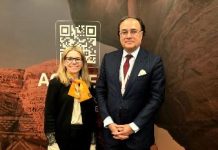BANGKOK: Singapore has been shifting its tourism strategy to deal effectively with intense competition in the region, especially from Thailand, Hong Kong, South Korea and Japan. Ashlynn Loo, Singapore Tourism Board area director for Thailand and Myanmar, said the launch of low-cost carriers in the region allowed people to travel easily. “We are really an open country. We do not see any huge impact from the AEC, but higher competition in the region, especially in tourism sector, from major cities in the region,” Loo said, referring to the Asean Economic Community coming into full effect in 2015. She added that international tourists these days were looking for attractions they could not find at home. “We want to make sure we can cater to that market.”
Loo said the Singapore Tourism Board over the past two years had adopted a “visitor-centric marketing approach”, meaning different markets would be approached differently.
“Under this approach, we have focused on doing market studies |in different countries to understand the specific needs of visitors from those markets and find out their lifestyles and what are they look for and what appeals to them while travelling. The marketing message will be different from one country to another.”
She gave the example of Australia, where Singapore promoted its campaign taglines as “Get lost” and “The holiday you take home with you”. For Indonesia and Malaysia, the tourism campaign tagline is “Only in Singapore right now”. For Thailand, a new campaign tagline will be launched in November.
The total visitor arrivals to Singapore reached 14.4 million last year, generating revenue of S$23 billion (US$18.27 billion). These included 470,000-480,000 Thai tourists.
About 90,000 travellers from Myanmar also visited Singapore last year. The island republic is trying to promote its advanced healthcare services such as implantation, transplantation, and cancer treatments to Myanmar people.
The top five markets contributing to Singapore’s tourism industry are Indonesia, Malaysia, China, India and Australia.
Loo said 2010 was the year of transformation in Singapore’s tourism sector with many new physical attractions developed. They included two integrated resorts, Marina Bay Sands and Resorts World Sentosa, costing more than S$13 billion in total, offering accommodations, dining, MICE space, shopping, entertainment facilities, including casinos. Gardens by the Bay was developed the following year; and River Safari and Marine Life Park in 1012.
A sports hub, a new Pinacotheque museum in collaboration with the French museum, and a national art gallery will be opened within the next few years.
“With limited space for physical development, given the total area of 710 square kilometres in the city state, we will also focus on increasing capability of our tourism industry by raising efficiency of our workforce and by using technology in the tourism industry. The move is to achieve our target of 17 million travellers to Singapore and generate Sing$ 30 billion in total revenue by 2015,” Loo said.











